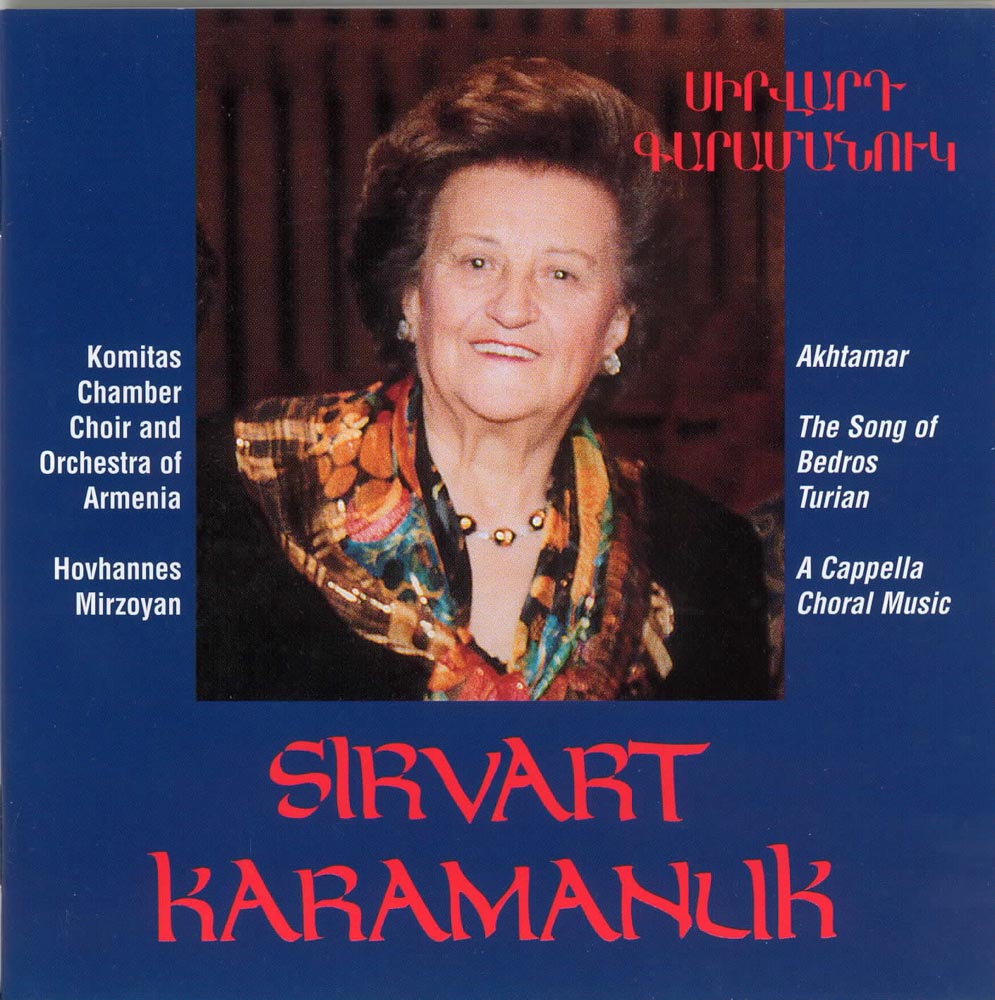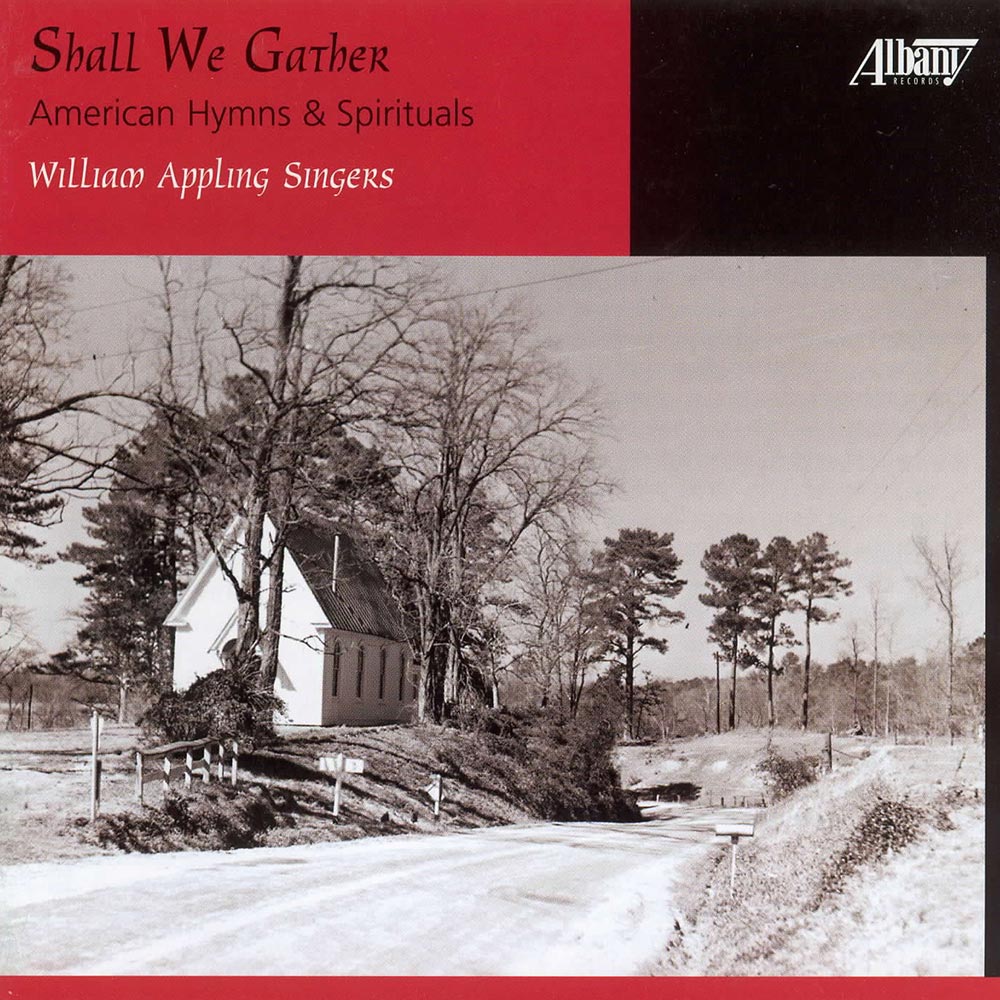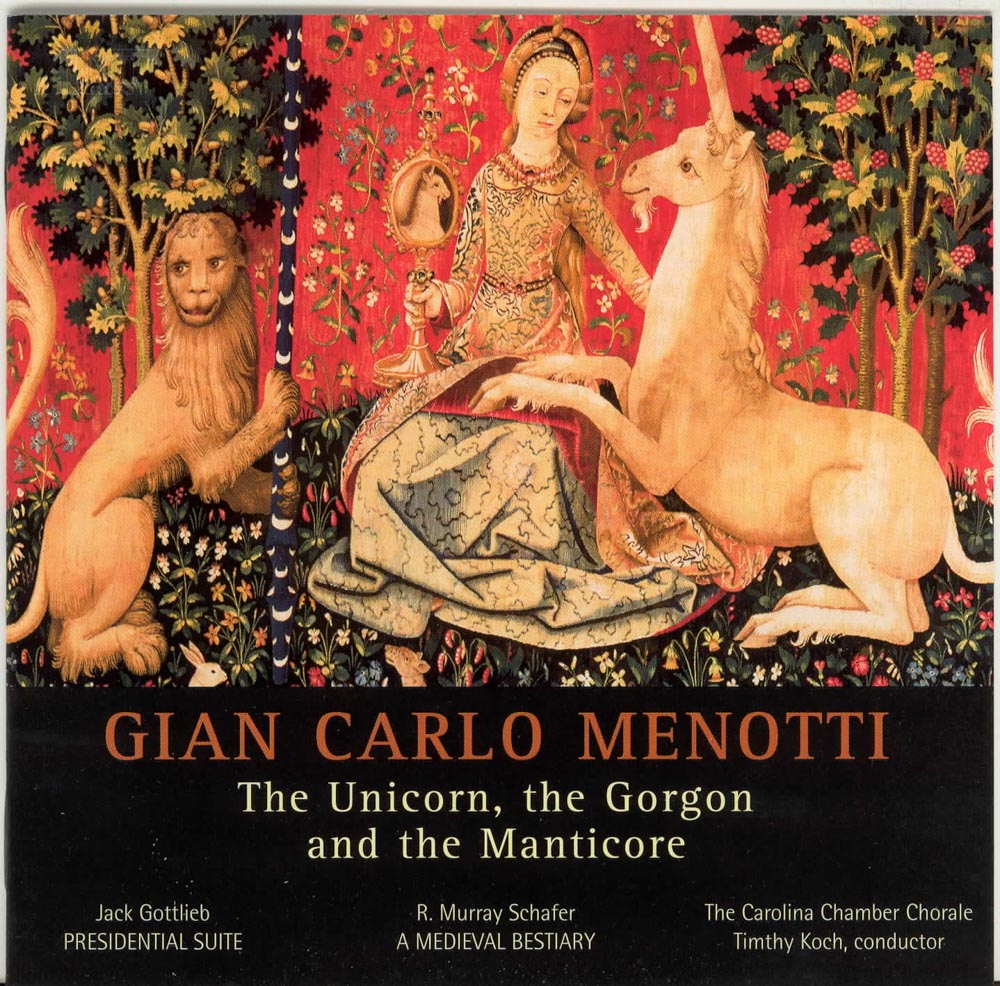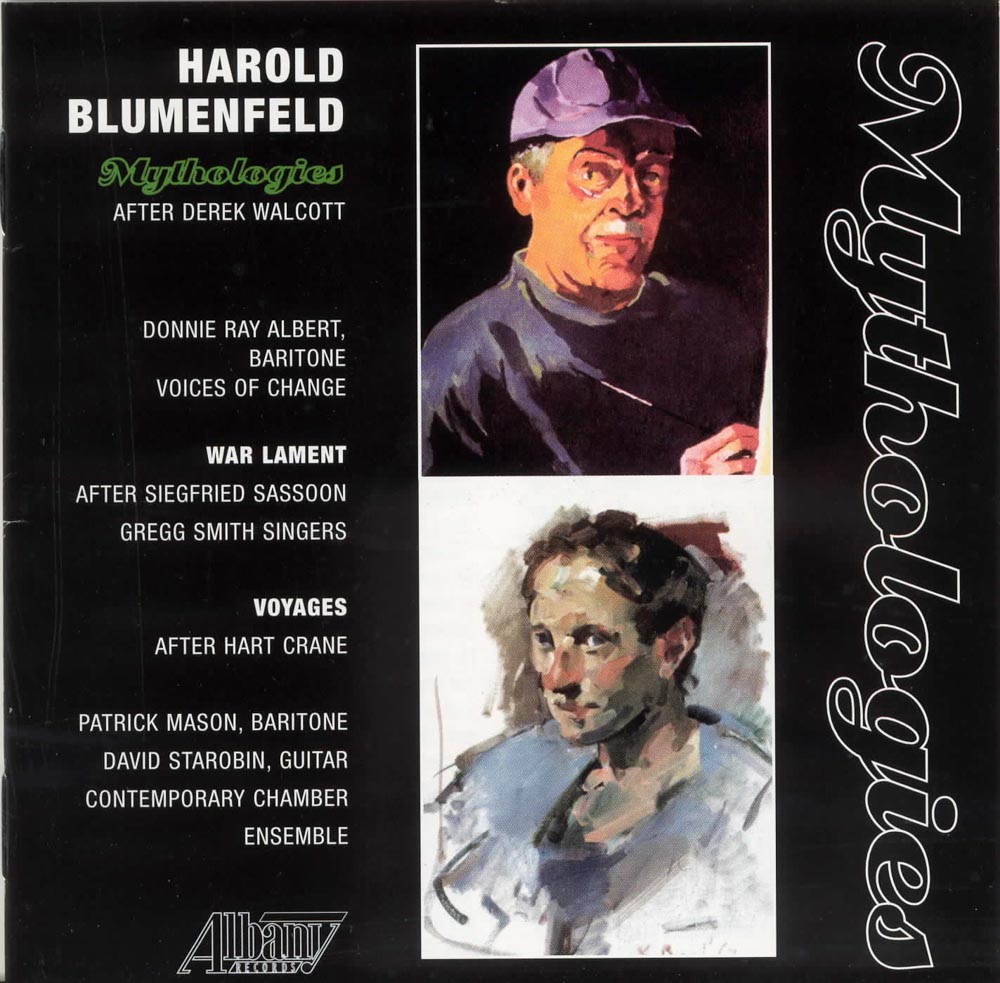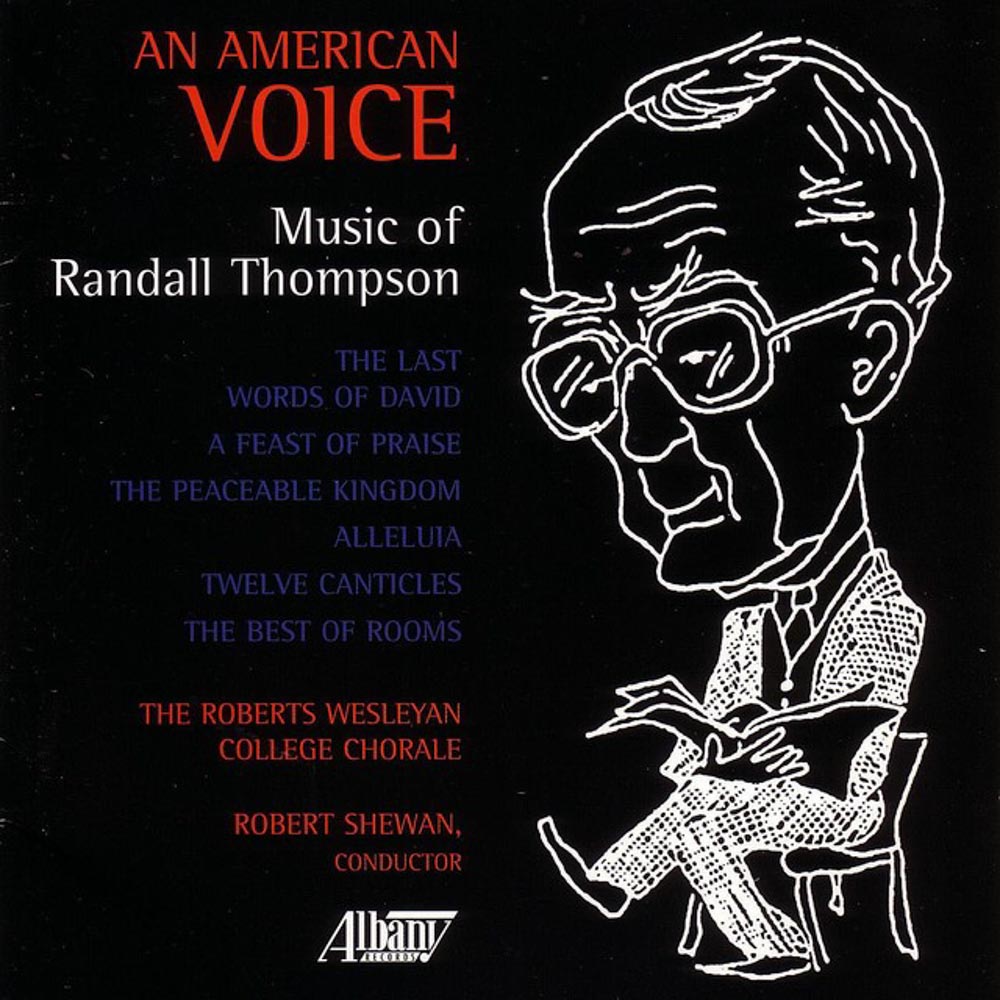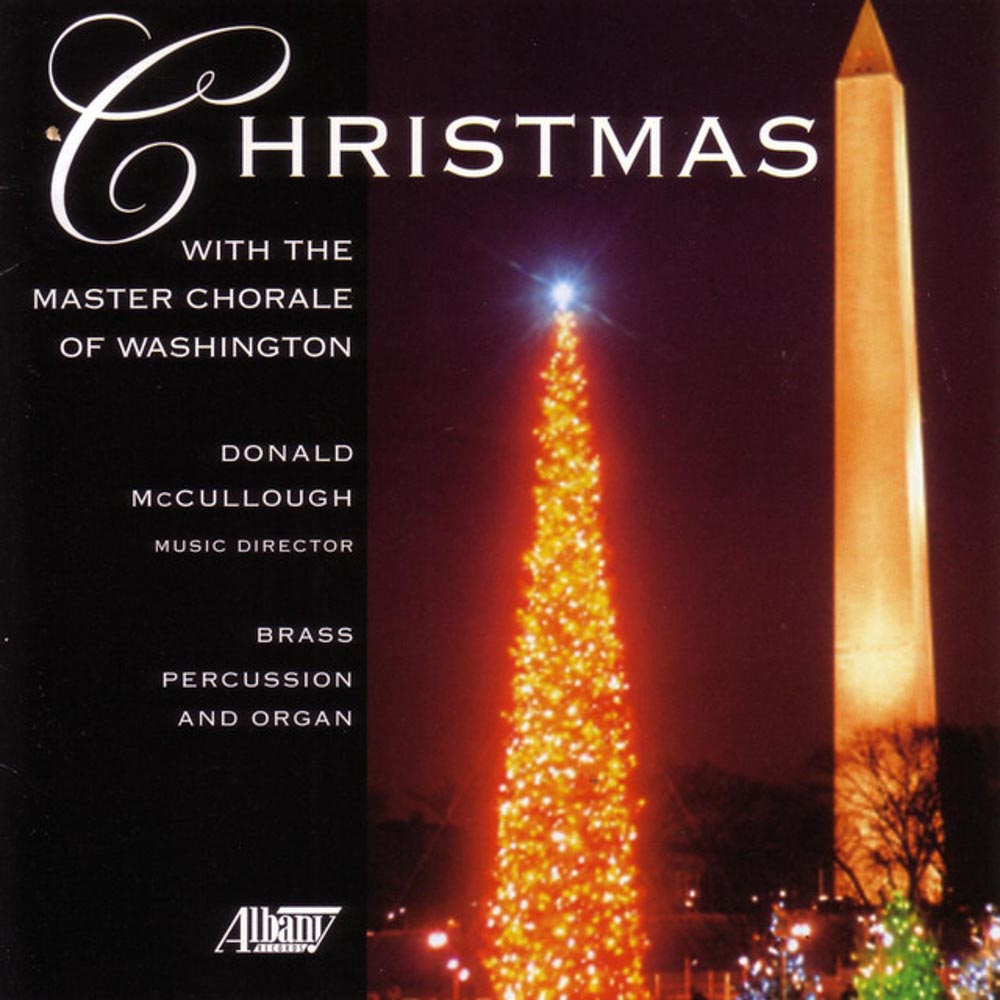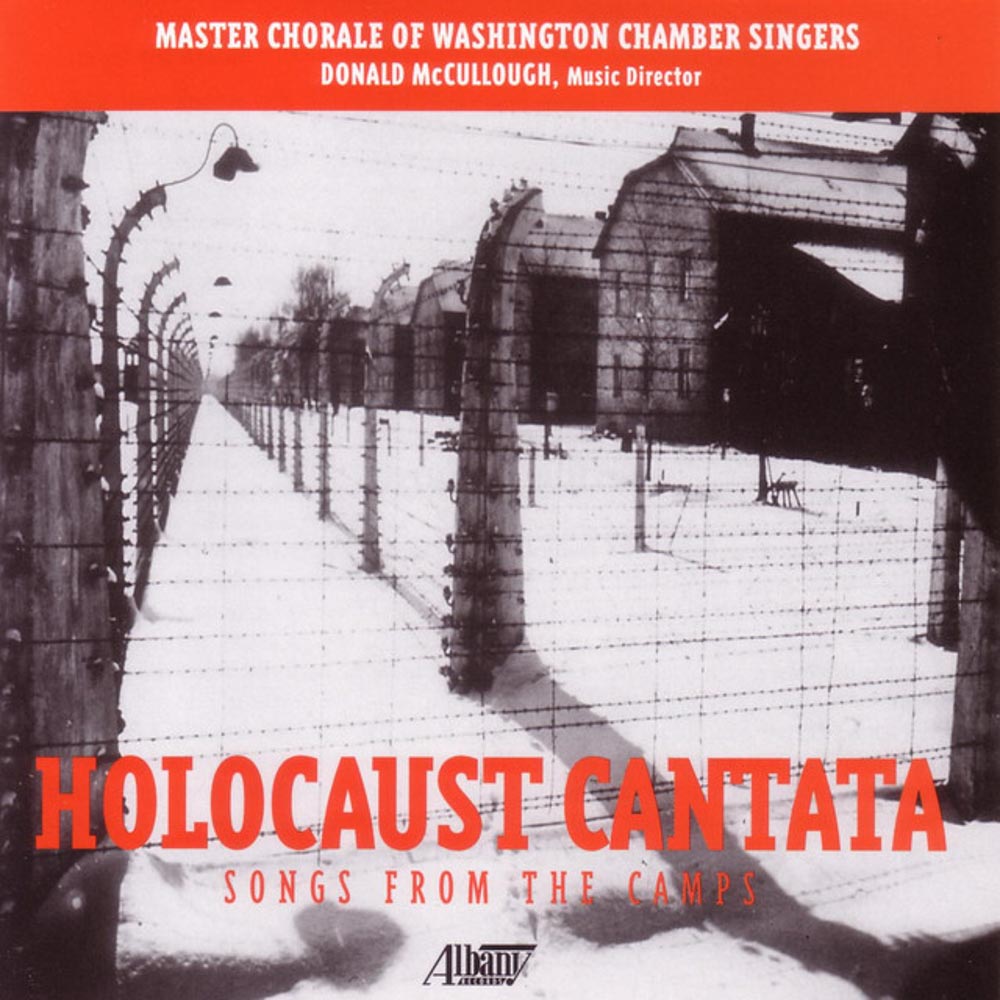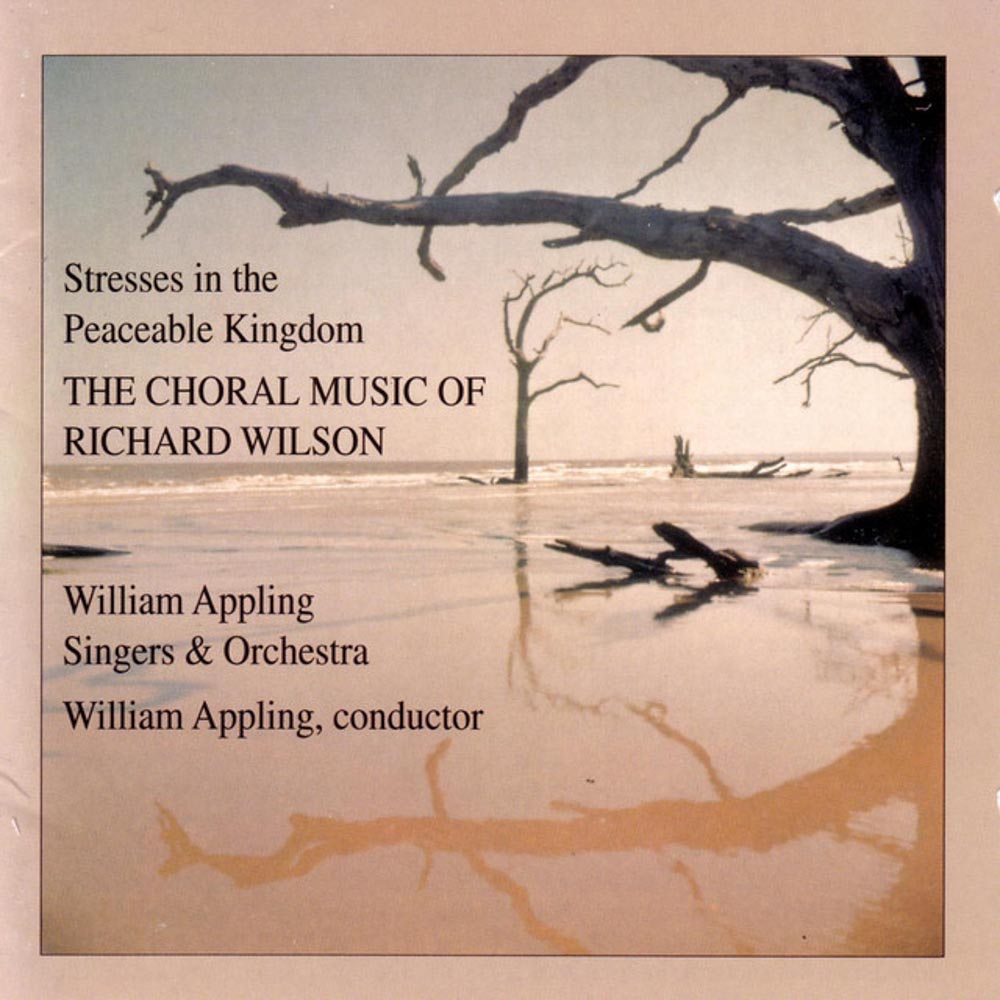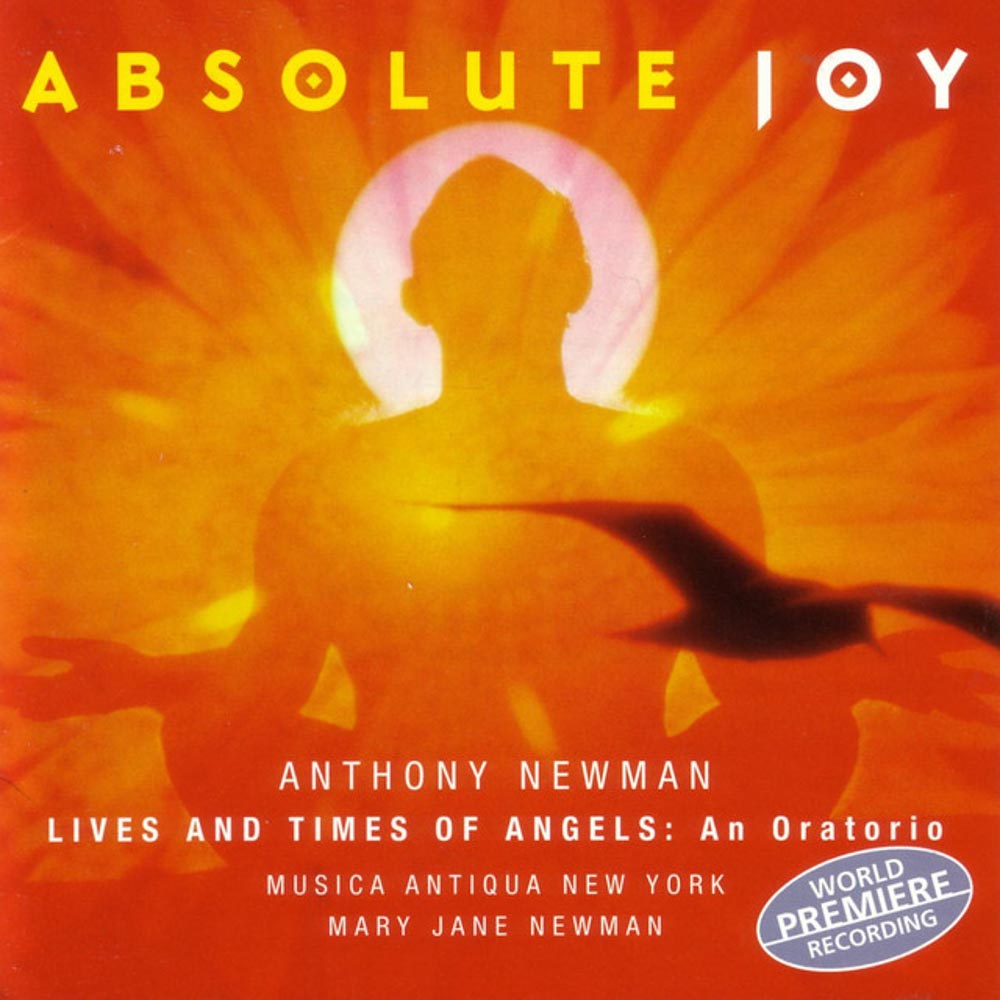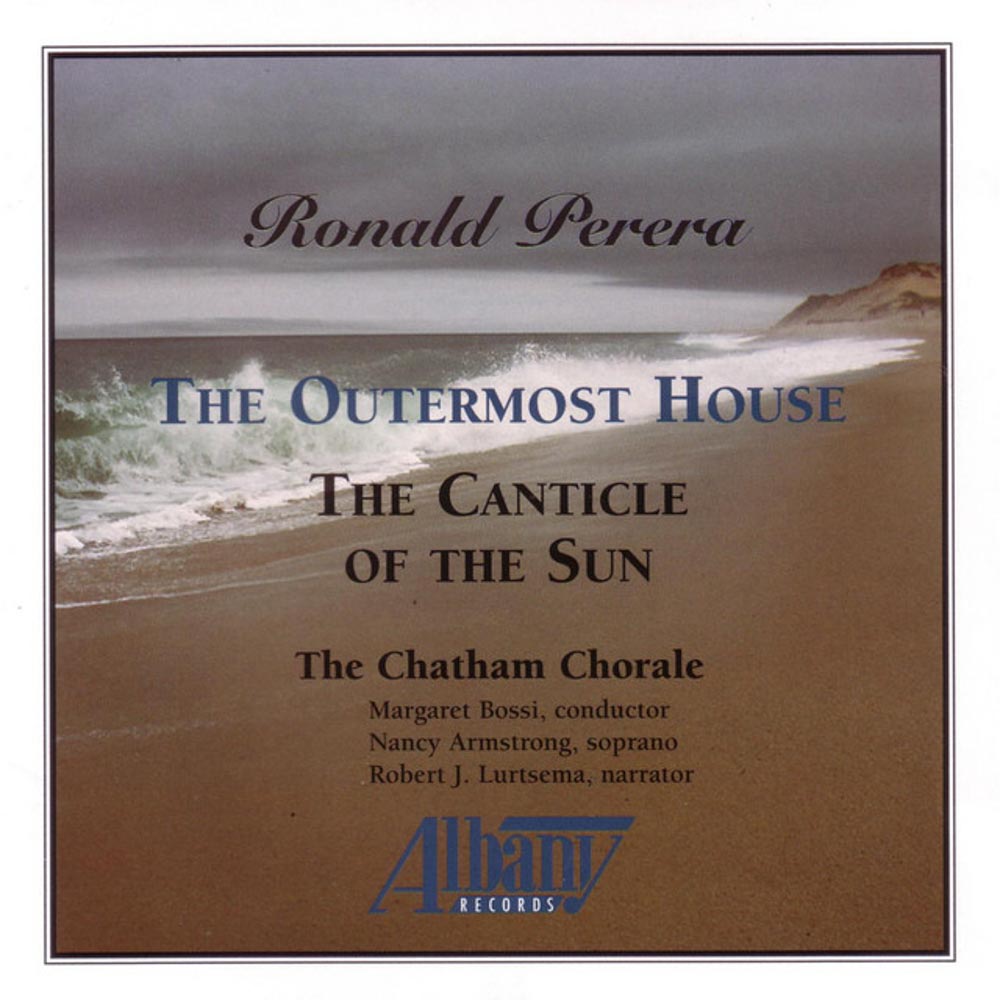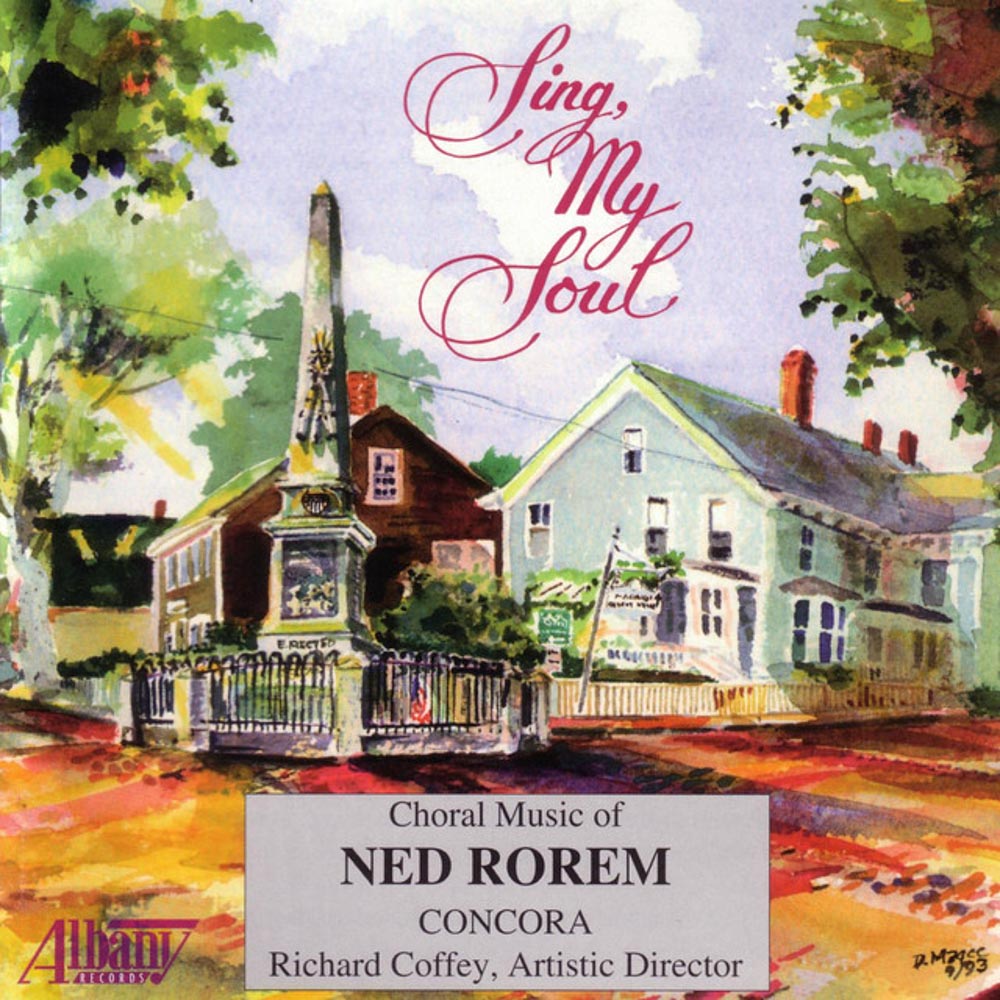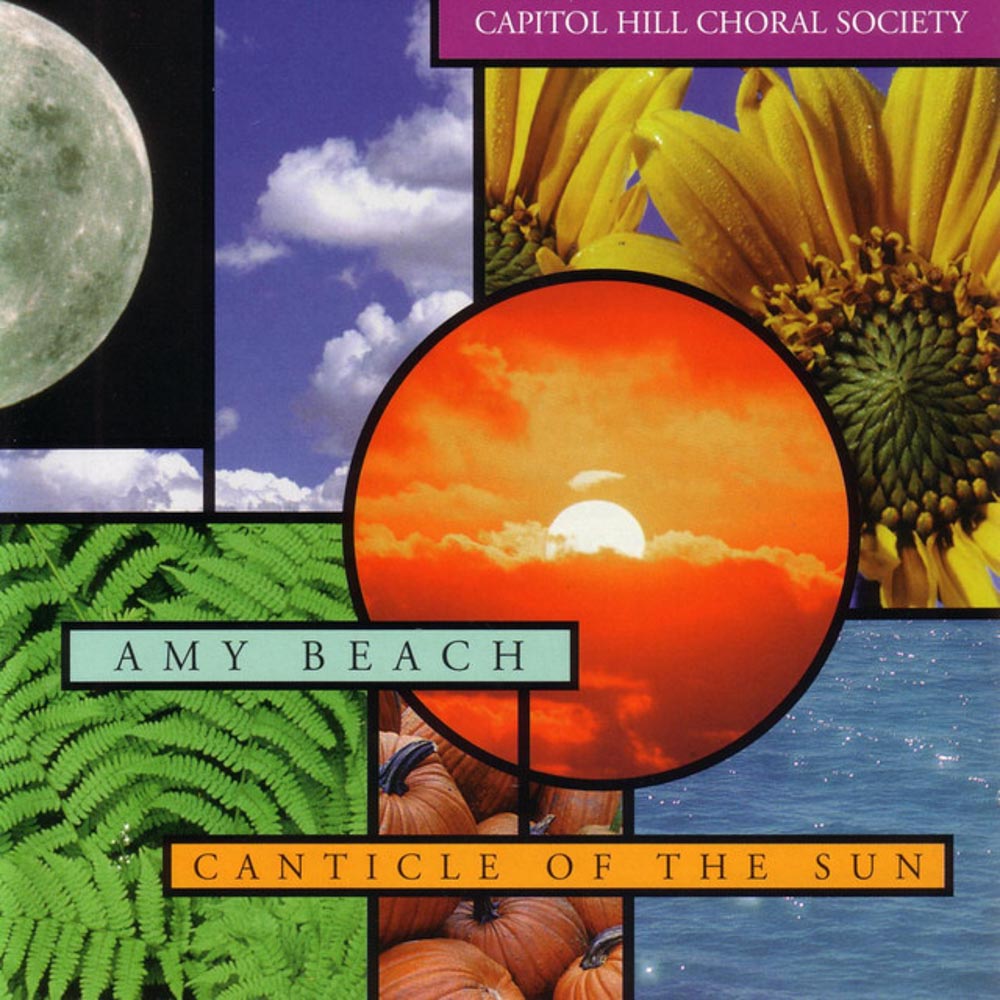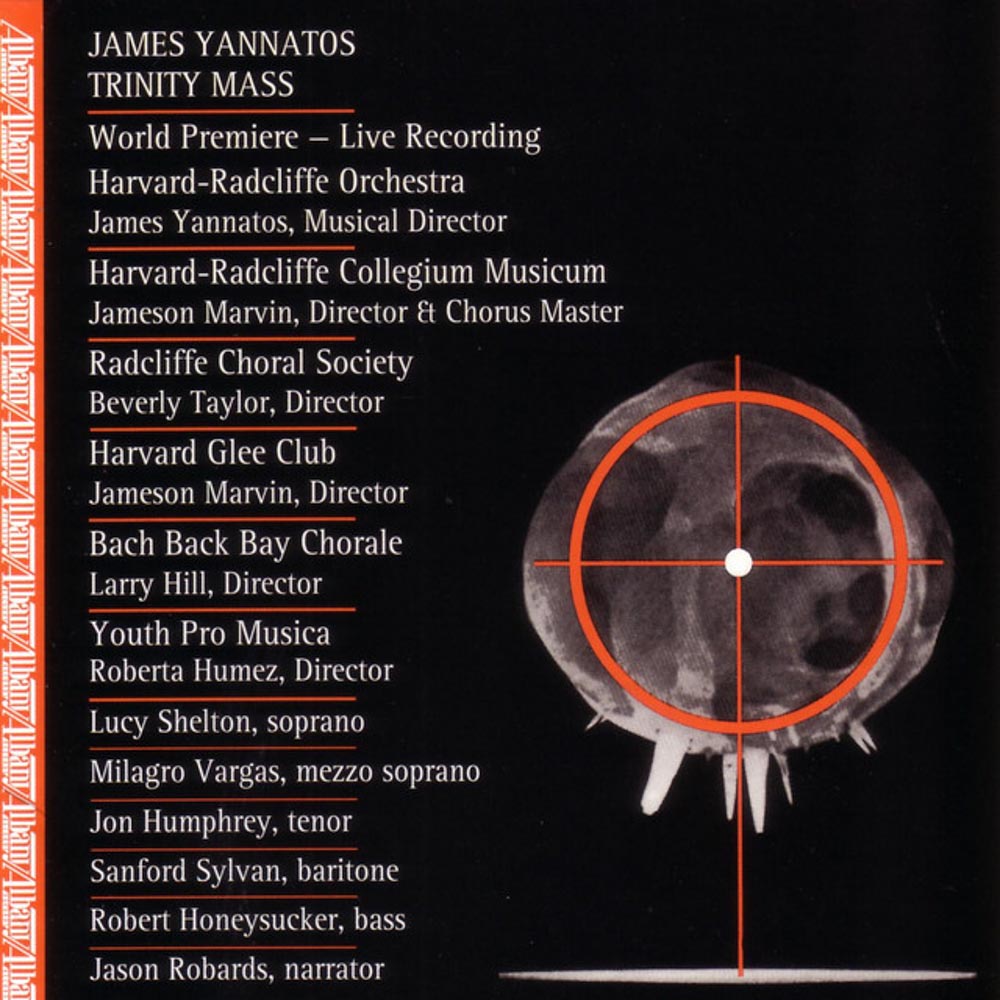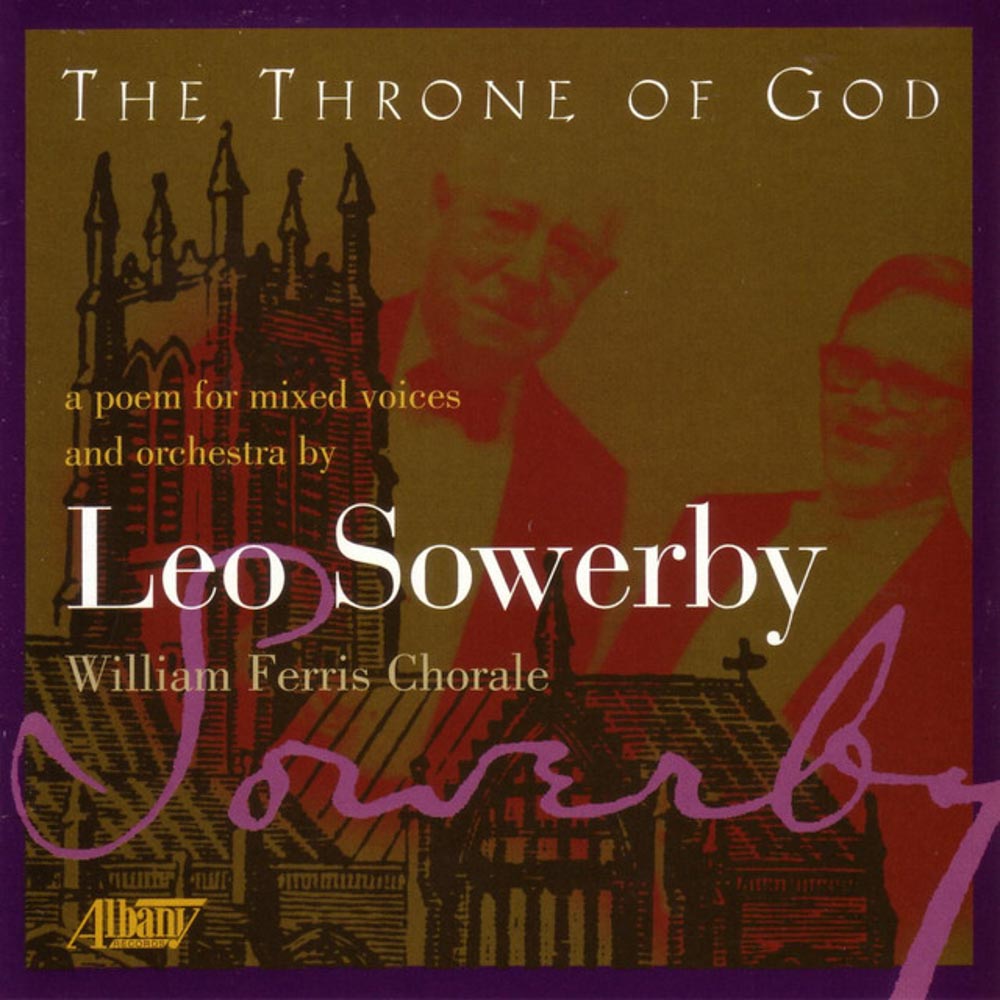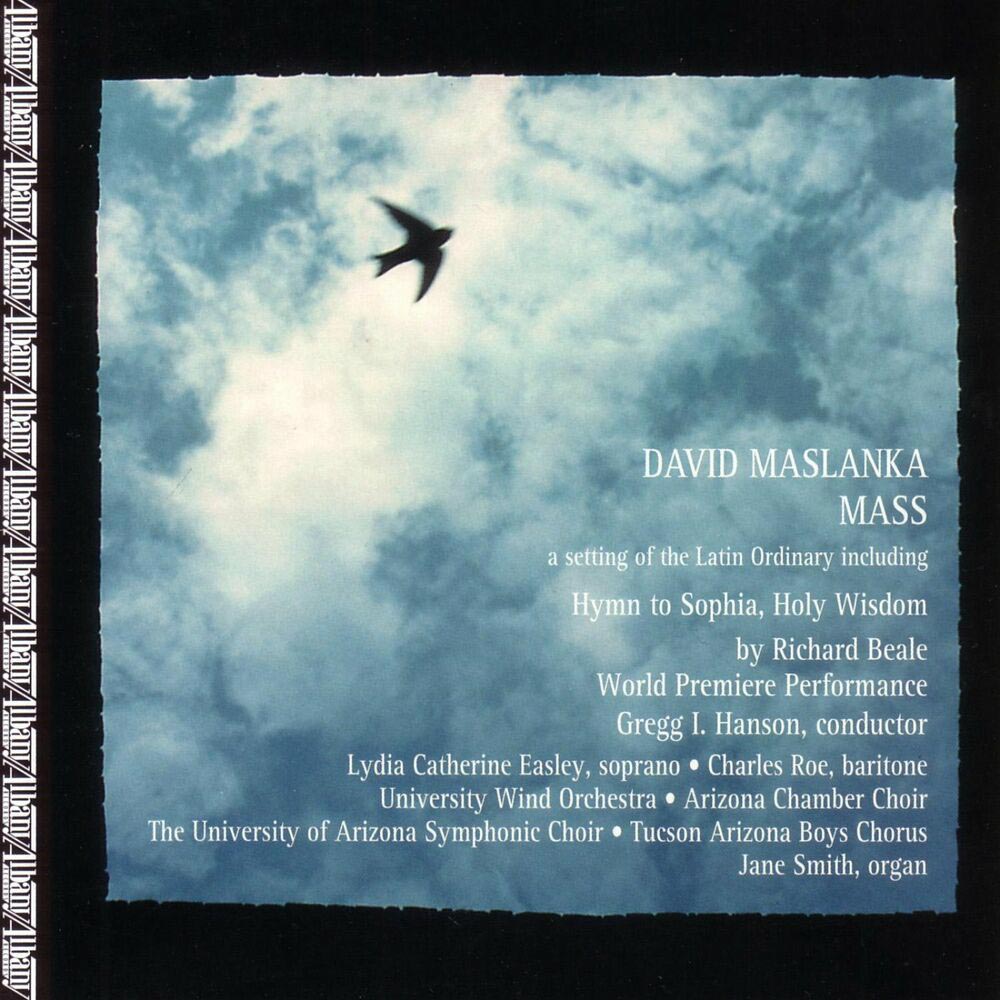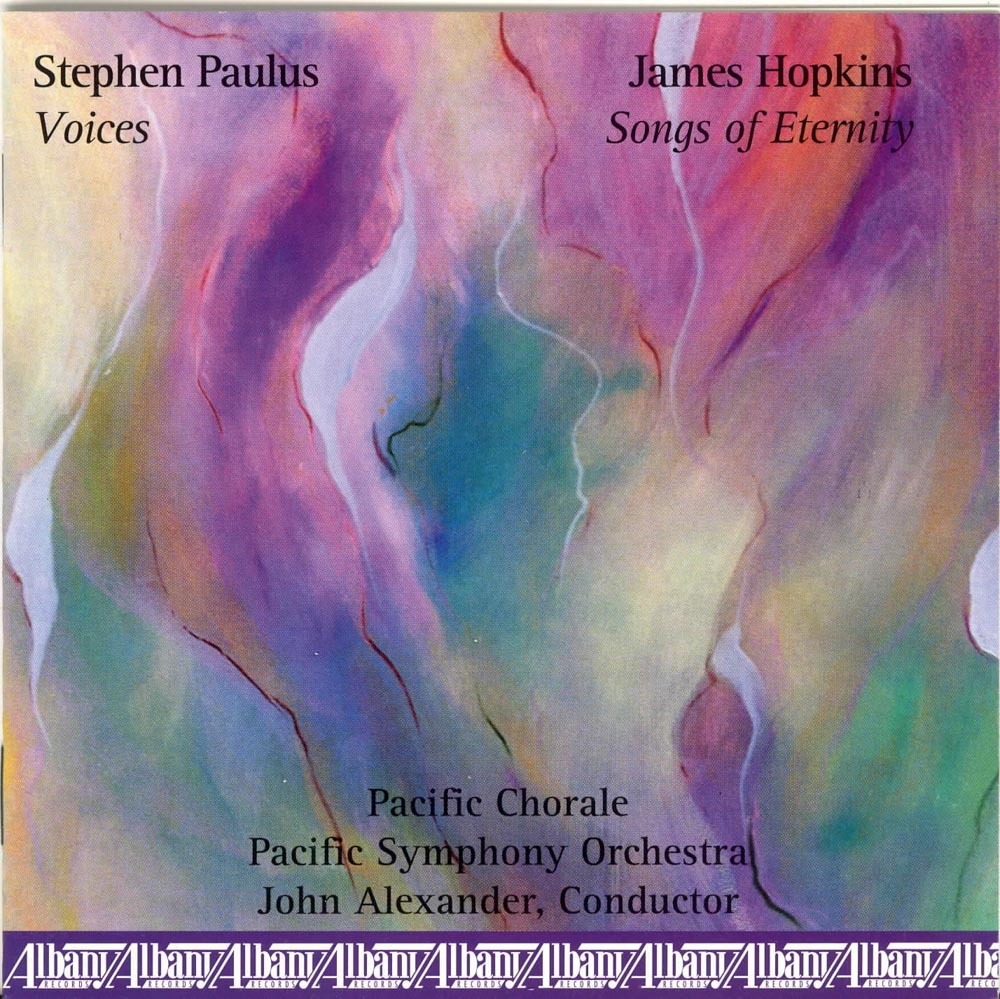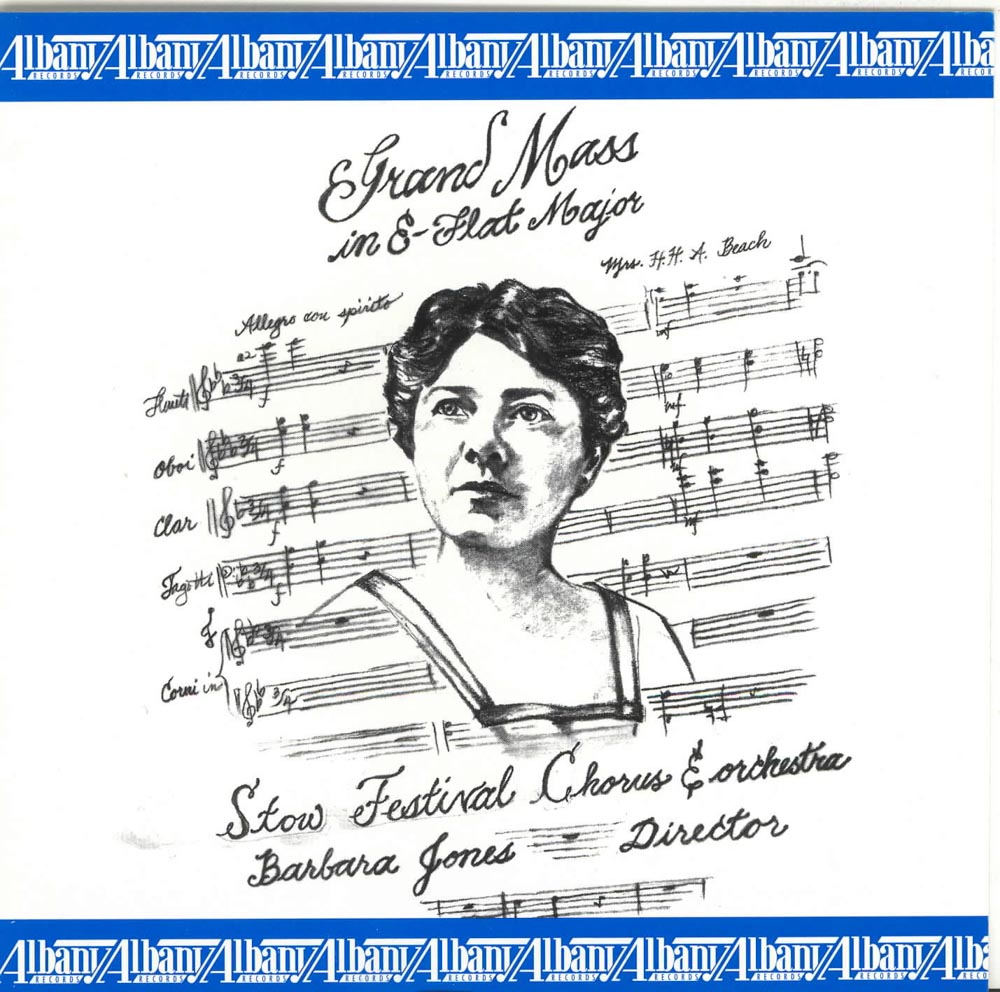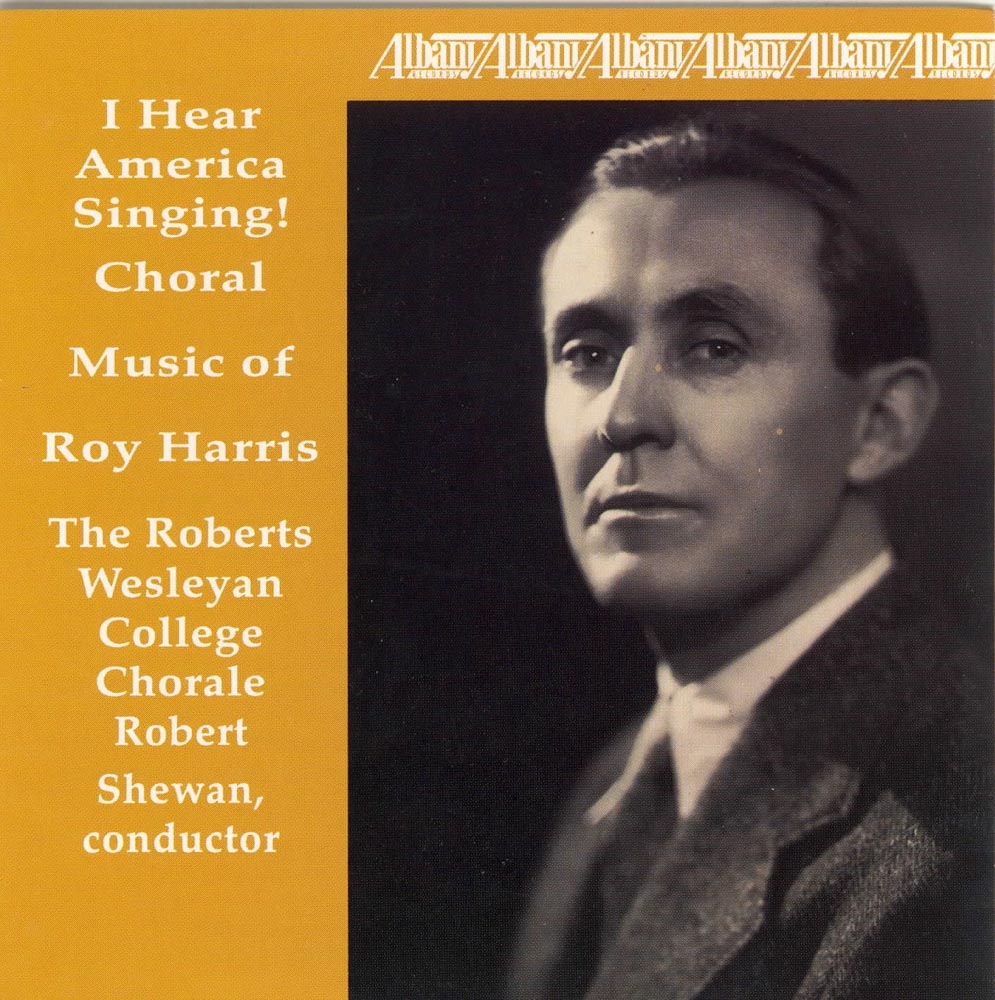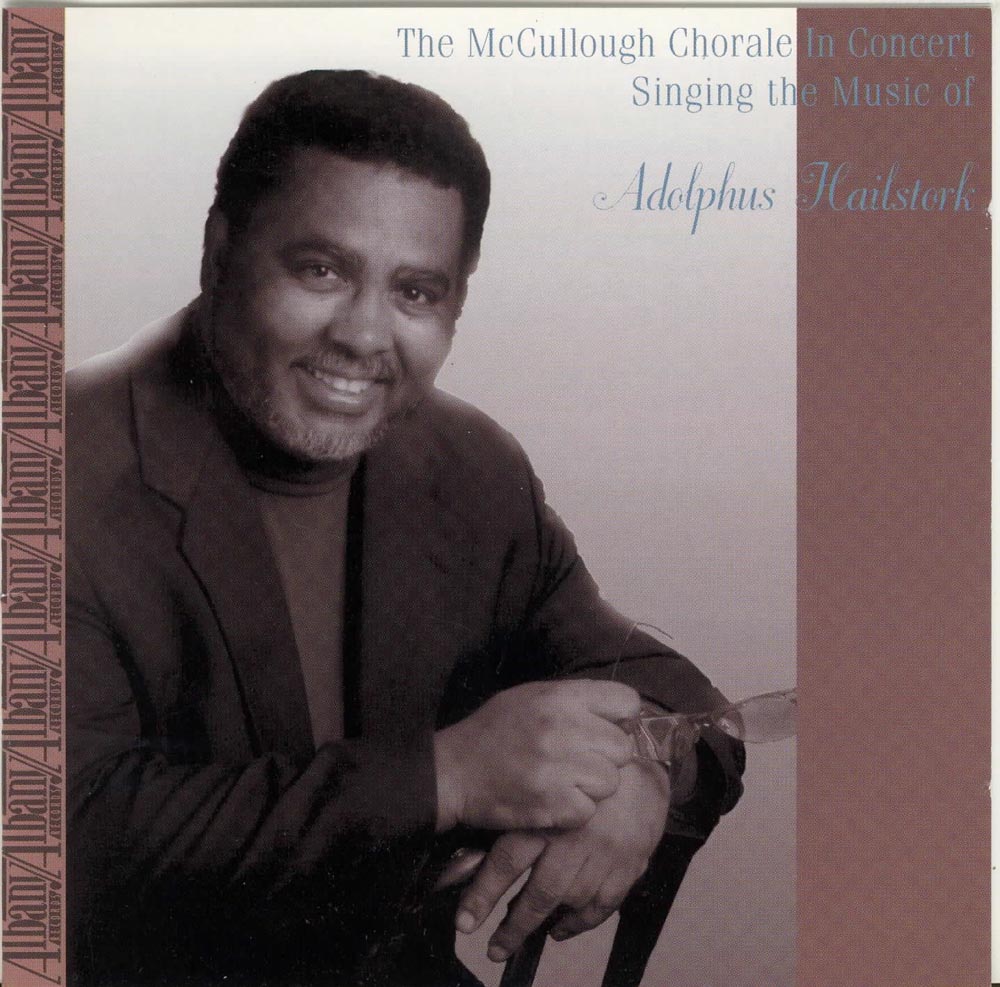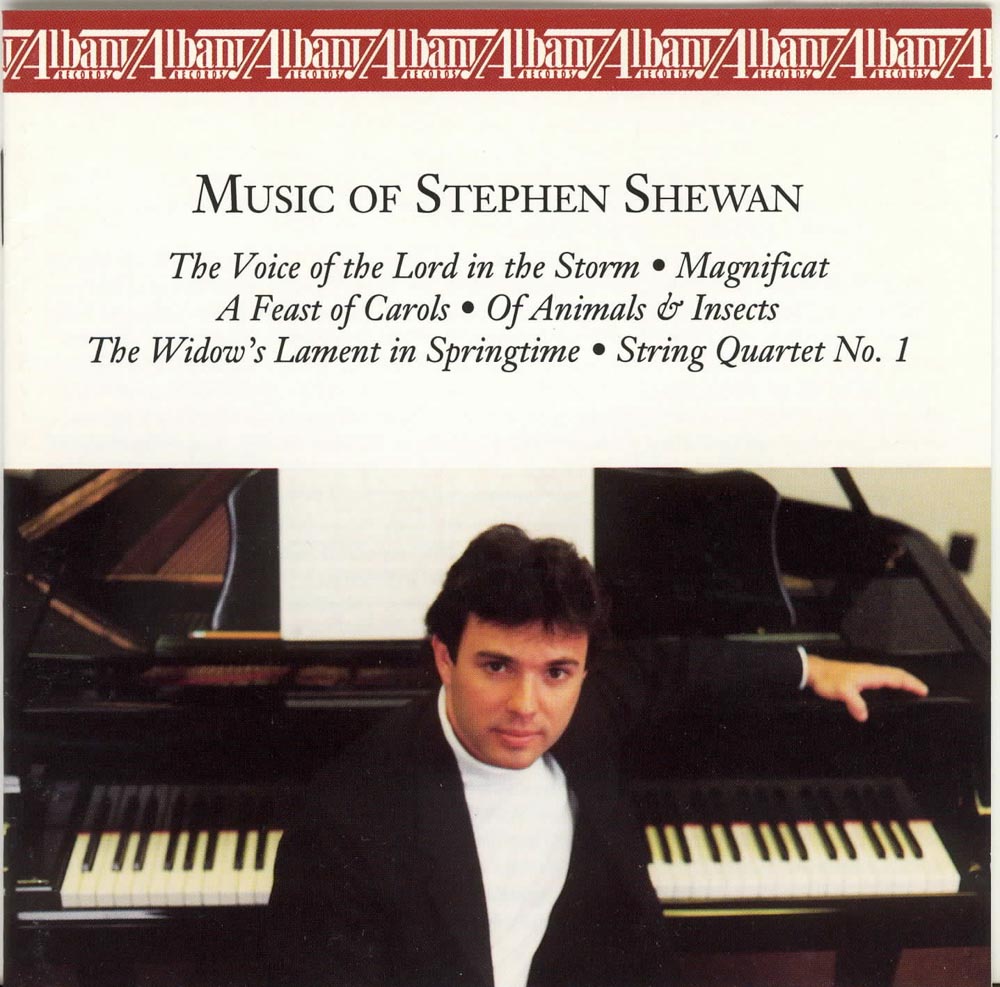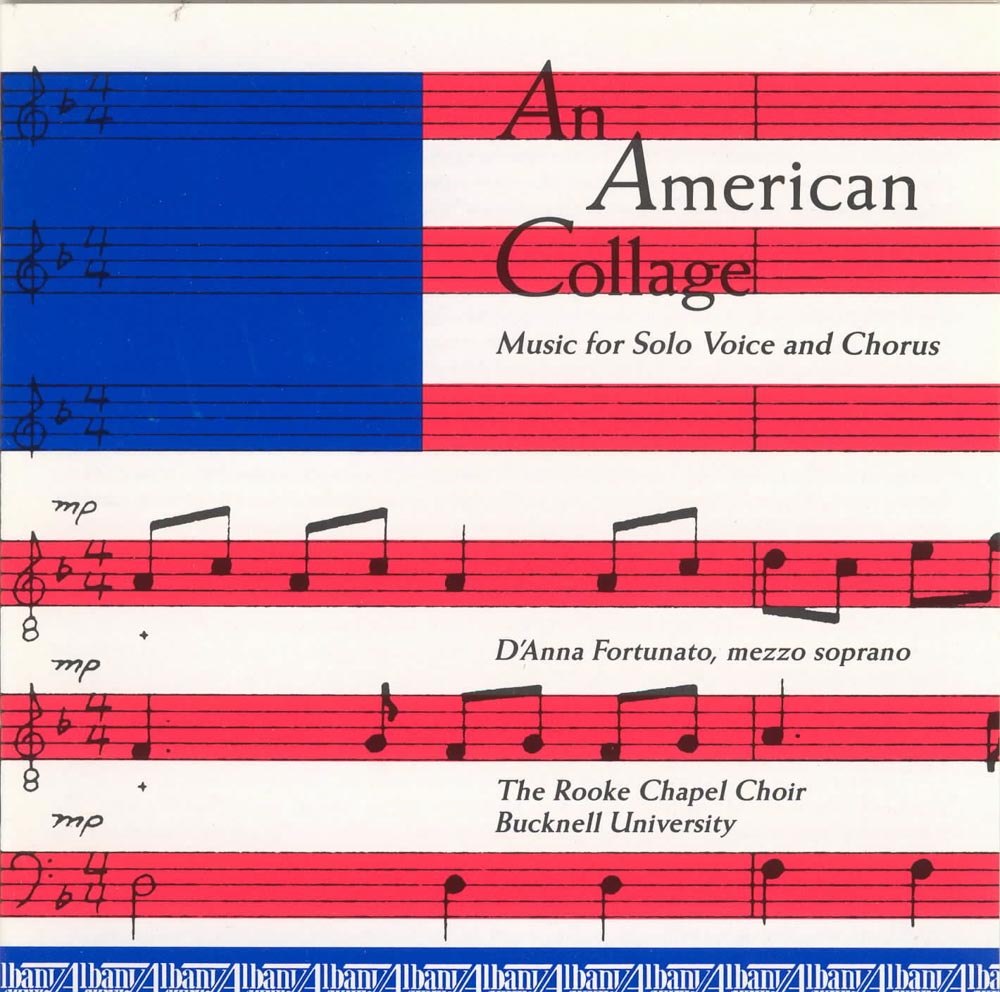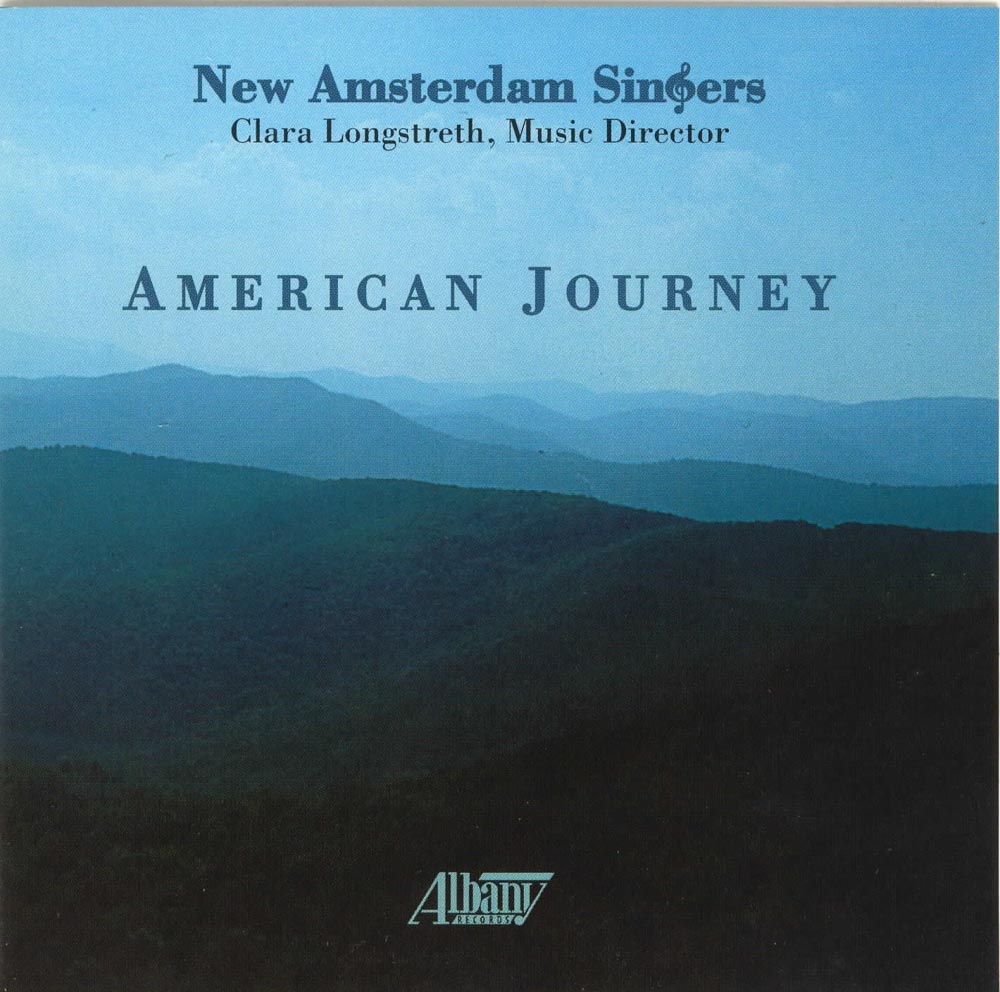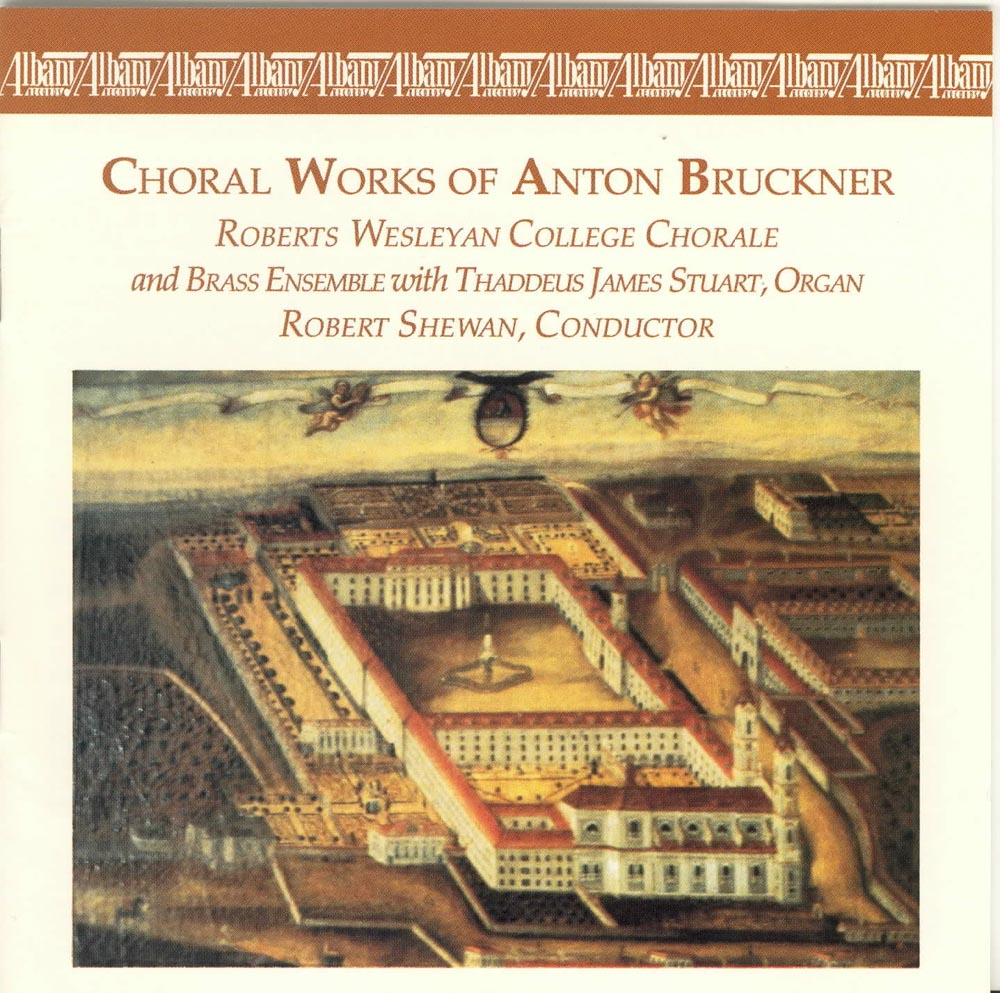Catalog #: TROY0478
Release Date: September 1, 2001ChoralArmenian composer Sirvart Kalpakian Karamanuk was born in Istanbul in 1912. She studied at the Istanbul Municipal Conservatory, graduating in 1939. Her first compositions, written in the 1940s, were for the piano. She gradually broadened her musical interests, composing numerous art songs, choral works, large-scale compositions for chorus and orchestra as well as chamber works and arrangements of liturgical chants. Like many composers of the Armenian diaspora, Karamanuk's creative concerns focus on maintaining a link with Armenian church music and folk song and absorbing the classical traditions of Armenian culture. In molding her own musical language, Karamanuk borrows from Armenian oral tradition. This recording of her songs includes a cantata and was the first large-scale setting of poems by Armenian poet Bedros Turian.
Catalog #: TROY0476
Release Date: September 1, 2001ChoralMost of the hymns on this recording were written in the 19th century or before, when Americans in general thought more about God than they do today. Our minds nowadays are occupied with other subjects. And yet, surprisingly, our greater familiarity with doubt may help us to hear these hymns more clearly than people in former times could have done. To us a hymn may stand out more vividly against the immensity of the surrounding doubt-filled silence. Faith is not something you have, it’s something you do; the same can be said of art. As an act of faith or a work of art, a hymn exists in that uncertain moment between giving up and going on. A hymn is an inspired decision to go on. The hymns and spirituals on this recording are among the great discoveries faith has made about itself, through words and music that now belong to us all. For a period of about 250 years, from the arrival of the Puritans to nearly the end of the 19th century, the most pervasive musical form in America was the hymn. While Protestant hymns and Negro spirituals were certainly the predominant hymnody in America throughout this time, other denominational hymns were written and sung as well. The first hymnal for the Jewish congregation in Charleston, South Carolina was compiled in 1843 and the Shakers have given us some of the most beautiful and interesting religious songs that have been written in America. This recording was made at a live concert at Christ &St. Stephen’s Church in New York City. Beautifully sung by the William Appling Singers, this recording will satisfy both the Americana scholar, the music lover and those of faith.
Catalog #: TROY0452
Release Date: September 1, 2001Choral" In Canada, Schafer has won national and international acclaim not only for his achievement as a composer but also as an educator, environmentalist, literary scholar, visual artist and provocateur. Through his unique explorations of the relationships between music, performer, audience and setting, he has expanded the potential and appreciation of music and its place in the arts and culture of our time. The texts of the songs in A Medieval Bestiary are based on T.H. White's translation of a Latin bestiary dating from the 12th century. In the Middle Ages bestiaries were serious works of natural history. They were anonymous compilations of what was known or presumed about the characteristics and habits of animals, both real, and mythological. Because they were compiled by churchmen, the behavior of animals frequently seemed to point up an instructive moral for humans. The highlight of this disc is Menotti's The Unicorn, the Gorgon, and the Manticore. Here is one of Menotti's most accomplished works. It was commissioned by the Elizabeth Sprague Coolidge Foundation and calls for chorus, dancers and nine instrumentalists. The text focuses on a well-to-do, but eccentric man in a castle and presents his life in three stages, his youth, middle and old age. Three unusual pets symbolize these stages - a unicorn, a gorgon and a manticore. Today, in his 90th year, Gian Carlo Menotti is one of the world's finest composers. It is a pleasure to welcome this delightful music back to the catalog.
Catalog #: TROY0443
Release Date: June 1, 2001ChoralHarold Blumenfeld is a composer given to language, languages and the human voice. Born in Seattle of musical parents, he studied at Yale with Hindemith, in Zurich, and trained with Leonard Bernstein and Boris Goldovsky at Tanglewood. In the Sixties, from his academic base at Washington University, he launched the Opera Theatre of St. Louis, forerunner of the present company, focusing on the production of early and contemporary works. During a 1970 summer residency at Yaddo, he drafted the choral War Lament, converting the forceful World War I poetry of Siegfried Sassoon into a polyphonic protest against the Vietnam War. Though still loosely anchored in a kind of "neo-classicism", this work, with its dramatic outbursts and moments of poignancy, engendered textural and coloristic choral procedures going materially beyond a cappella norms. In 1990, Derek Walcott visited St. Louis to offer readings of his work to a literary organization in which Blumenfeld was involved. The composer was swept away by the power and imagery of this poetry and a friendship was forged over shared adoration of Rimbaud. Blumenfeld mustered three Walcott poems into the cycle Mythologies, scored for baritone, flute, clarinet, three celli and percussion - the work featured on this disc. On impetus from the great guitarist David Starobin and with great audacity, Blumenfeld tackled Hart Crane's vast Voyages cycle, setting it for baritone with guitar, viola and percussion.
Catalog #: TROY0386
Release Date: April 1, 2000ChoralThe custom of teaching Bible stories by means of sacred drama is an old and venerable one. Angels follows this tradition. Working with librettist John Vorrasi, William Ferris has created a striking portrait of the Archangels Michael, Uriel, Gabriel and Raphael. During the summer of 1988 William Ferris was commissioned by Keynote Arts Associates of New York to write a short work for a chorus and orchestra of young performers. The only condition stipulated was that the orchestra be "Classical" in its layout and size so that the text could be clearly articulated and readily understood and enjoyed by listeners. "I was irresistibly drawn to the delightful Modern Music text by the 18th century American William Billings" writes composer Ferris. "The words are a composer's dream. The energy, color and rhythmic vitality of the text as well as the endless opportunities it provided for word-painting with vocal, harmonic and orchestral effects made it a sheer joy to set to music. The form of my composition is easy to grasp and follows text in all of its leaps, bounds and commands!" Ferris is the first American composer to teach at the Vatican. His Holiness Pope John Paul II conferred a Papal knighthood upon him in 1989 and Radio Vatican broadcast a concert of his music worldwide. In 1971 he founded the William Ferris Chorale, an ensemble dedicated to celebrating music of the 20th century. For seven years he was organist of Chicago's Holy Name Cathedral. During Fulton J. Sheen's episcopacy as Bishop of Rochester, New York, Ferris was organist and choirmaster at Sacred Heart Cathedral. Sir William Walton said: "What a splendid chorus the Chorale is. How lustily they sang. It is really first class!"
Catalog #: TROY0362
Release Date: December 1, 1999ChoralHere is Albany Records' tribute to Randall Thompson in his centennial year. There can never be too many recordings of this wonderful composer's music. His relatively small collection of works is dominated by a cappella choral music, most of it composed to English texts, all of it characterized by splendid craftsmanship and painstaking workmanship, with vocal lines gratefully shaped and rewarding to sing. Not surprisingly, his music is oftentimes classified as neo-classic in its inspiration, a personalized blend of 16th and 17th century contrapuntal techniques with a conservative yet recognizably 20th century harmonic base. His stated goal throughout his career was to create music of sensibility and good taste, which both musicians and audiences would appreciate. He favored simple melodies and harmonies over abstract modernist styles, which he felt to be antithetical to the natural use of the human voice. "Writing for voices has a purifying and refining effect on any composer's work," said Thompson in describing his approach to music. "Choral music makes terrifyingly simple demands. Good texts for choral music must be based on universality of appeal... After choosing a text, then sing it a thousand ways to yourself until you latch on to a tune. Let the tune and the words develop the form, (and when the composition is complete) sing every part yourself. If you can't sing it yourself, there is something wrong."
Catalog #: TROY0353
Release Date: November 1, 1999ChoralThe Master Chorale of Washington (formerly the Paul Hill Chorale) has attracted the praise of critics nationwide through over 200 performances at the Kennedy Center, American and European tours, and national radio and television broadcasts. Since 1969, the Chorale has performed with the National Symphony Orchestra under Howard Mitchell, Antal Dorati, Dmitri Kabalevsky, Julius Rudel, Neville Marriner and Mstislav Rostropovich. In 1971, the Chorale was featured in the inaugural concerts of the John F. Kennedy Center for the Performing Arts in Washington, and performs an annual series of concerts in the Kennedy Center Concert Hall. There are 140 singers in the group, including a professional core. In June 1999, the Chorale was awarded the prestigious Margaret Hillis Achievement Award for Choral Excellence by Chorus America.
Catalog #: TROY0352
Release Date: November 1, 1999ChoralIt is well-known that during the Holocaust inmates wrote music while incarcerated in concentration camps. What about the music that was composed by the common man in these camps? Music embraced by the whole community and passed secretly by aural transmission - music that carried with it powerful words revealing different aspects of camp life, or expressing the inmates' innermost feelings, of mourning, resistance, or patriotism? Was there another Holocaust music from the one we are more familiar with today? Was there a music that spoke with startling immediacy to express the agony of the victims of the Nazi regime? It was this question that first led Donald McCullough on a year-long journey through one of the cruelest chapters of the 20th century. His quest, to extract from the mammoth archives of the United States Holocaust Museum, the material that formed the basis of the Holocaust Cantata , was, like all difficult endeavors, marked with equal amounts of intuition and good luck. The result is the music heard on this disc.
Catalog #: TROY0333
Release Date: May 1, 1999ChoralRichard Wilson, like Robert Ward, was born in Cleveland, where he studied piano and cello. After graduation from Harvard, he received a grant which allowed him to study in Munich. Back in the United States he studied composition with Robert Moevs at Rutgers and then joined the music faculty of Vassar College where he holds the Mary Conover Mellon Chair in Music. He is also Composer-in-Residence with the American Symphony Orchestra. About this disc the composer writes: "This recording encompasses all of my choral music: from In Schrafft's, begun in 1966, to Poor Warren, composed in 1995. Ten works, spanning thirty years. Four poets are involved: W.H. Auden, Stephen Sandy, John Unterecker and John Ashbery. With each of them I have had some degree of personal association. W.H. Auden was friendly with individuals in Harvard's Quincy House, where I lived half my undergraduate years, and could often be seen in bedroom slippers, taking meals in our dining hall. I never summoned the nerve to meet him. Stephen Sandy was my English teacher in 1959 and was, in fact, the first college teacher I encountered as a fearful, insecure, unconfident freshman. Only later did I discover his poetry. John Unterecker worked on his Hart Crane biography at the artists' colony Yaddo when I was also a guest. We became friendly and enjoyed long talks together. Finally, John Ashbery teaches at Bard College just up the Hudson River from Vassar. We share an appreciation of Jack Benny's radio programs from the 1940's."
Catalog #: TROY0327
Release Date: February 1, 1999ChoralAbout Absolute Joy Anthony Newman writes: Absolute Joy was written over a period of ten months in 1996-97, using texts of the Jewish Bible, the New Testament, and the Book of Enoch. Conceived in three parts, the dramatic structure comprises angelic accounts in the Torah, texts dealing with the fallen angels, and messengers of the Most High in the Christian Bible. It also includes quotations from the English poets John Milton, William Shakespeare, and William Blake. The work was premiered at the Presbyterian Church, Mount Kisco, New York, as part of Mary Jane Newman's Candlelight Concert Series, on April 26, 1998 - with the same forces as appear on this recording. I have felt the presence of the Divine at crucial times in my life, in human form and in more undefinable phenomena, what some might term angelic. I wanted to honor these great beings of light and power with Absolute Joy . I am also humbly dedicating this work to the memory of an angel of compassion, Mother Teresa of Calcutta." For three decades, Anthony Newman has been in the public eye as one of the country's leading keyboard players, and as a prodigiously active composer, conductor and recording artist. Mary Jane Newman's many talents as conductor, harpsichord and Organ soloist are widely recognized in the U.S. and Europe. She made her New York debut in 1986 in Lincoln Center's prestigious Great Performers series at Alice Tully Hall.
Catalog #: TROY0314
Release Date: November 1, 1998ChoralThe big draw for this disc is the fact that Robert J. Lurtsema from WGBH' s Morning Pro Musica does the narration. For 27 years he has been known to classical music lovers everywhere. Ronald Perera was born in Boston and studied with Leon Kirchner and Randall Thompson. Today he is Elsie Irwin Sweeney Professor at Smith College. The text of The Outermost House is taken from Henry Beston's A Year of Life on the Great Beach of Cape Cod written in 1928. Though the book produced only modest initial sales, its readership continued to grow, and after World War II it began to achieve something of a cult status. Rachel Carson said that it was the only book that influenced her writing. Today it is generally acknowledged as a classic of American nature writing, and many of Beston's words have become part of the modern environmental credo: "The world today is sick to its thin blood for lack of elemental things." "Creation is here and now." "Touch the earth, love the earth, honor the earth." Ronald Perera's The Outermost House received its premiere on November 16, 1991 with the Chatham Chorale. Canticle of the Sun by Saint Francis of Assisi was commissioned for the one hundredth anniversary in 1984 of Groton School, a venerable independent secondary school in Massachusetts with a religious affiliation symbolized by a splendid gothic chapel in which the piece was premiered on April 21, 1985.
Catalog #: TROY0307
Release Date: November 1, 1998ChoralCONCORA - Connecticut Choral Artists, was founded in 1974 by Richard M. Coffey. CONCORA'S mission is to "perpetuate and perform with excellence choral music of the highest quality for the broadest possible audience." Since its founding, the all-professional chorus has built an extraordinary reputation for artistic excellence throughout New England. Mr. Coffey writes: "The challenge in preparing a recording of choral works of Ned Rorem is not in the selection of what to include but in the perverse necessity of selecting what to omit. For over a year I pored over Rorem scores, both published and unpublished, corresponded with the composer who had a few modestly proffered suggestions, and sat at the piano for many a happy hour playing and singing a treasury of anthems, canticles, motets, choral hymns, and choral songs. For every work presented here there is another, equally beautiful, awaiting its turn before the microphone. Ned Rorem's love for words is manifest well beyond his popular diaries and prose. He selects great texts and then wraps them in fine melodies, tunes which ennoble and illuminate. After only a few listenings to Love Divine or Come, Pure Hearts one may be tempted (don't resist) to whistle and hum them quite spontaneously. This disc is presented as a tribute to Ned Rorem on the occasion of his 75th birthday (October 23, 1998). The music in this collection is an eclectic grouping of works dating from 1955 through 1988 including pieces for a cappella choir, as well as others accompanied by Organ or piano, with texts (both prose and poetry) from religious, scriptural, and secular sources."
Catalog #: TROY0295
Release Date: July 1, 1998ChoralAmy Beach was a member first of Emmanuel Episcopal Church in Boston and later of St. Bartholomew's Episcopal Church in New York. Early in the century, a movement had begun in Oxford to renew in the Anglican church the Catholic traditions of the ancient past. The Church restored the ancient practice of singing the liturgy for the services and designed the rituals of worship to express the awe and mystery of the Christian faith. Choirs proliferated and there was a great demand for new liturgical music and anthems. During the years of Beach's marriage to Dr. Henry Harris Aubrey Beach, her publisher issued 14 separate pieces, including most of the music contained on this wonderful CD. The origin of The Canticle of the Sun is interesting. In 1924, she went to the MacDowell Colony. Here, she came across the text of St. Francis of Assisi's Canticle of the Sun. In a 1943 interview published in The Etude, she told this story. "I took it up and read it over - and the only way I can describe what happened as that it jumped at me and struck me, most forcibly! As if from dictation, I jotted down the notes of my Canticle. In less than five days the entire work was done." The first performance of the work with Organ accompaniment took place on December 8, 1928 at St. Bartholomew's in New York. The Toledo Choral Society, performing with the Chicago Symphony, gave the premiere of The Canticle with Orchestra on May 13, 1930. "The Canticle of the Sun by Mrs. H.H. A. Beach proved the sensation of the evening. This biblical hymn of praise and jubilation, set in a glorious musical expression of majestic melody... literally brought the audience to its feet in a desire to honor the composer."
Catalog #: TROY0241
Release Date: June 1, 1997ChoralHere is an important 20th century American choral work in a premiere performance. James Yannatos was born and educated in New York City. He attended the High School of Music and Art and the Manhattan School of Music. He then studied with Nadia Boulanger, Luigi Dallapiccola, Darius Milhaud and Paul Hindemith. He studied conducting with William Steinberg and Leonard Bernstein. While composition is the dominant theme of his career, he has consistently resisted the tendency towards specialization, believing it necessary for a composer to explore and participate in music as broadly as possible. He has earned his living first as a violinist, then as a teacher and conductor. He has been the Music Director of the Harvard-Radcliffe Orchestra since 1964. Trinity Mass uses the requiem mass as a musical and inspirational framework. The libretto blends prose and verse from 33 sources and several languages. Poems, children's words, public speeches, words of Hiroshima survivors, and scientists' accounts of the first atomic test explosion are combined with passages from the Bible and the mass text. The libretto was written in the spring of 1983, and the music was completed and Orchestrated in March 1984. The work was premiered in April 1986 with a pair of performances at Harvard and in New York City at the Cathedral of St. John the Divine. The title of the work is derived from the first atomic bomb test in the New Mexico desert, which J. Robert Oppenheimer code named "Trinity" after reading John Donne's sonnet: "batter my heart, three-personed God; for you as yet but knock, breathe, shine and seek to mend."
Catalog #: TROY0232
Release Date: May 1, 1997ChoralThis disc features concert recordings of performances given between 1986 and 1995, including the historic 90th birth celebration "Remembering Leo" held on February 21, 1986. The Throne of God, Interlude, and God Mounts His Throne are all world premiere recordings (The Throne of God lasts over 45 minutes). William Ferris, a student and dear friend of Leo Sowerby writes: "Leo Sowerby is remembered today as America's foremost composer of Organ and liturgical music, but during the first part of the century he was among our most often performed symphonic composers. His intensely personal and highly individual style requires a long familiarity and sensitivity in performance, and when such care is expended, a compelling, powerful, daring and original music emerges. The Throne of God has proved to be the towering masterwork of Sowerby's mature period. Filled with brilliant choral and Orchestral writing, it is in many ways a perfect summation of the daring inventiveness and heartfelt sincerity found in Sowerby's previous compositions, both sacred and secular. After its premiere on November 18, 1957, Paul Hume, the music critic for the Washington Post wrote: "applause contrary to all tradition, shattered the sacred precincts of Washington Cathedral last night to honor a great living composer. Sowerby, a Pulitzer Prize winner, has given Washington Cathedral a worthy momento of its anniversary." The Throne of God is a huge work, certain to change people's impression of Sowerby and his music.
Catalog #: TROY0215
Release Date: December 1, 1996ChoralLike a book, this CD is divided thematically into four parts: Music of the Great Poets, Our Sacred Heritage, Holocaust Suite and Music of the People. The composers represented range from the young American, Eric Whitacre to the old - Norwegian Alfred Jansen. Situated in Coral Gables, the University of Miami is the most comprehensive private research university in the southeastern United States. Its School of Music ranks among the most innovative in the nation. While building on the classical tradition, the School incorporates a contemporary approach to learning and creatively responds to the changing needs of the world of music. The Chorale is one of nine choral ensembles in the School of Music and it was founded in 1993. It has quickly established itself as one of Florida's leading collegiate choral ensembles. The voices of the chorale are chosen from across the campus, drawing both music majors and majors outside the School of Music. Note that Peter McGrath helped with the engineering of this recording.
Catalog #: TROY0221-22
Release Date: November 1, 1996ChoralThis is a live recording of the world premiere performance of this work that took place in April, 1996 and as such there is some noise and a few rough spots, but this is music of the highest order that is well worth hearing. Mr. Maslanka calls his new composition Mass, a setting of the Latin Ordinary including Hymn to Sophia, Holy Wisdom by Richard Beale. This is a very serious piece of music in a vein similar to Britten's War Requiem. Maslanka writes: "Almost from the start of my thinking about the Mass, I was moved to include the female creative or the Holy Mother, an image that has arisen in many forms in my meditative life. I asked my friend Richard Beale to consider the problem. His marvelous and almost instantaneous response was "Hymn to Sophia, Holy Wisdom," a set of seven poems on the Holy Mother theme, that I have used in my setting of the Mass as preludes to the Latin texts." As you can see from the forces listed that are needed to perform this Mass, it is a huge work. The recording itself captures beautifully the sheer magnitude of the sound of this music.
Catalog #: TROY0182
Release Date: December 1, 1995ChoralStephen Paulus' Voices was premiered in November, 1988 by the Minnesota Orchestra and the Dale Warland Symphonic Chorus. Commissioned by the Association of Clinical Pastoral Education, Paulus fund the most difficult part was finding words which would impart a spiritual message with power and purpose while not alienating anyone because of his or her own particular religious faith. He turned to the words of Rainer Maria Rilke, which seemed to him to impart both a timeliness and power that was fitting. Songs of Eternity was composed by James Hopkins in memory of David Lee Shanbrom whose life was tragically cut short in an automobile accident. The text is a poem by Indian author Rabindranath Tagore. Although the poems relate to some aspect of death, the prevailing mood is one of subdued joy in eternal life. Commissioned by the Orange County Philharmonic Society to celebrate the 25th anniversary of the Pacific Chorale, the work was given its premiere by these forces. Two major choral-orchestral works by two very significant American composers.
Catalog #: TROY0179
Release Date: November 1, 1995ChoralThis performance was recorded live on January 22, 1995, at the Cathedral Church of Saint Paul, Tremont Street, Boston, Massachusetts. How does a performance like this happen? Genuinely dedicated people research the literature. They find music they feel worthwhile. They convince others of its worth and then rehearse and prepare it to the best of their resources. This is the only composition they work on. They perform it, make a tape and send it to Albany Records. We are impressed by the dedicated effort that has gone into the project, the musical integrity of the forces involved, and of the commitment of the musicians to the music. All this comes through in the performance. We then make the decision to bring it to you. The Beach Mass has only one other performance in the catalog and this Stow performance presents a very different approach to the music. The Grand Mass comes from Amy Beach's most productive period, the same period that produced the Gaelic Symphony and the wonderful Piano Concerto. Its premiere was in Boston on February 7, 1892. It was given by the Handel and Haydn Society and was the first time it had ever performed anything by a woman. In 1896, the Boston Symphony gave the premiere of her symphony. The Grand Mass is a large, romantic work, sure to appeal to a large audience. The forces on this disc do a great job of conveying the stature and magnitude of the music.
Catalog #: TROY0164
Release Date: August 1, 1995ChoralThis new all-Harris disc contains the best of his choral music. In his program notes for this disc, John Proffitt writes: "Roy Harris wrote music especially rich in qualities American regard as reflecting their national life and character - honesty, vigor and expansiveness - a tonal reflection of his western background. This Americanism was not that of the big cities and Tin Pan Alley, but rather was that of the bleak and barren expanses of the western plains, of the brooding prairie night, of stronger, more fundamental emotions than are usually associated with that other musical Americanism, that of Jazz and Broadway." The selections on this CD range from a cappella chorus to chorus with brass and organ. The "Mass," "Alleluia," and "Madrigal" are world premiere recordings. The "Three Songs of Democracy," "Symphony for Voices on Poems of Walt Whitman," and "When Johnny Comes Marching Home" are first stereo recordings.
Catalog #: TROY0156
Release Date: June 1, 1995ChoralAll of the works on this disc of choral music are world premiere recordings. As Dr. Hailstork says in the notes for this album, he has always enjoyed singing, right from the beginning when he was a boy soprano in the choir of the Cathedral of All Saints in Albany, New York. Here he was exposed to a wide range of choral music. When he went to Howard University from 1959-1963, he also sang in the choir. The choir often appeared with the National Symphony Orchestra singing the great works from the choral-orchestral repertoire. Dr. Hailstork studied with H. Owen Reed, David Diamond, Vittorio Giannini, Nadia Boulanger, and Mark Fax at Howard University. He is currently on the faculty of Norfolk State University in Norfolk, Virginia, where he is Professor of Music and Composer-in-Residence. In the past few years his music has been performed more and more often. The McCullough Chorale, founded in 1984 by Donald McCullough is Virginia's only professional chorale.
Catalog #: TROY0149
Release Date: April 1, 1995ChoralThis is a recording devoted exclusively to the music of the young American composer Stephen Shewan. Shewan was born in Warsaw, New York in 1962. He is a graduate of Robert Wesleyan College and Ithaca College. He studied composition with Samuel Adler at the Eastman School of Music while pursuing his doctorate in music education. His is a fresh voice which Albany Records is pleased to bring to your attention. Shewan composes in an accessible idiom that should appeal to a broad audience.
Catalog #: TROY0124-25
Release Date: September 1, 1994ChoralHoratio Parker was born in Auburndale, Massachusetts on September 15, 1863. Although today he is remembered primarily as the teacher of Charles Ives, his music was well-known nationwide and in England during his day. He also had an excellent reputation as an organist-choirmaster, conductor, and teacher-administrator. He began the study of music at the age of 14 with piano and organ lessons from his mother, who was also librettist for some of his mature choral works. He studied composition with George Chadwick and attended the Hochschule fÜr Musik in Munich where he studied with Josef Rheinberger. Parker became Dean of the School of Music at Yale University and conductor of the New Haven Symphony in 1894, positions he retained until his death in 1919. Hora Novissima, written in 1893, remains Parker's most inspired, popular, and best work. The venerable critic Philip Hale summed up how Americans were to feel about their native oratorio for the next 25 years, as choral societies gave it performance after performance throughout the country. He said: "A future historian will point back to a young man [who] appeared with a choral work of long breath that showed not only a mastery of the technique of composition, but spontaneous, flowing, and warmly colored melody, a keen sense of values in rhythm and in instrumentation, and the imagination of the born, inspired poet." Hora Novissima is a contemplative rather than a dramatic oratorio. It is a reflection on the Christian heritage through the words of a medieval monk, Bernard of Cluny, from whose monumental poem, De Contemptu Mundi, Hora is taken.
Catalog #: TROY0098
Release Date: January 1, 1994ChoralThis collection of music for solo voice and chorus includes compositions by American composers Aaron Copland, John Duke, Jackson Hill, Richard Hundley, William Duckworth, Rudolph Palmer and Lee Hoiby. Several of the works were written expressly for D'Anna Fortunato (the mezzo-soprano soloist) and the Rooke Chapel Choir. Since her debut in 1971 with the Boston Symphony Orchestra, Fortunato has appeared as soloist with the New York Philharmonic, the orchestras of Cleveland and Louisville, and the Detroit, Pittsburgh, Atlanta, Houston, Dallas, and Minnesota symphonies. Ms. Fortunato has been featured in leading operatic roles with the New York City, Glimmerglass, Kentucky and Connecticut operas, as well as the Opera Company of Boston, Monadnock Festival, and Rochester Opera Theater. Andrew Porter of The New Yorker called her a "Handelian of crisp accomplishment," and Leighton Kerner of The Village Voice proclaimed her a "mezzo-soprano of profound musicality and technical aplomb." She has recorded on the Harmonia Mundi, Nonesuch, MusicMasters and Vox labels. Her album of songs by Amy Beach was voted "Best Record of the Year" by the New York Times, the Boston Globe, and New York Magazine. The Rooke Chapel Choir of Bucknell University, under the direction of William Payn, has gained international recognition for its creative interpretations of some of the most significant twentieth-century American sacred repertory.
Catalog #: TROY0108
Release Date: December 1, 1993ChoralThe twentieth-century American composers chosen for this program of choral music represent diverse styles and span almost 100 years; what they have in common is a sure sense for vocal writing, a preference for nontraditional but tonal harmony, and a delight in good poetry. The Composers: Halsey Stevens has taught at the University of California since 1948. He is an expert on Bartok and has composed a wealth of vocal and instrumental music. Charles Ives, New England's quirky, original insurance man-composer, began composing when he was 12 and held a job as church organist when he was only 14. Samuel Barber's gift for melody and the unabashed romanticism of some of his best-known works have made him one of the most popular mid-twentieth-century composers. Alan Hovhaness is an American composer of Armenian and Scottish descent. A prolific writer in a variety of forms, he is known for mystical works with an Eastern or Oriental flavor. Randall Thompson taught at the University of California at Berkley, Princeton, and Harvard, and was director of the Curtis Institute of Music. Ronald Perera studied with Leon Kirchner, Randall Thompson, and Mario Davidovsky. He has won awards and fellowships from the National Endowment for the Arts and ASCAP and teaches at Smith College. Matthew Harris, born in 1956, studied at Juilliard, Harvard, and New England Conservatory with Elliott Carter, Roger Sessions, Milton Babbitt, and Donald Martino. The recipient of many prizes and commissions, he is represented on record by Opus One. Irving Fine - teacher, conductor, respected and widely programmed composer of chamber, orchestral, and choral music - was educated at Harvard and later taught there and at Brandeis University. A contemporary of Leonard Bernstein and Aaron Copland, he died prematurely in 1962.
Catalog #: TROY0063
Release Date: December 1, 1991ChoralAnton Bruckner (1824-1896) is today recognized as a leading symphonic composer of the Viennese school in the direct lineage of Haydn, Beethoven and Schubert. Nine of his 11 symphonies are central to the late Romantic orchestral repertory, with the three mature masses and Te Deum representing the final flowering of the Austro-German symphonic choral tradition as exemplified by the festive mass-oratorios of Haydn and Schubert. A less familiar side of Bruckner's work is found in his many smaller occasional pieces for choir, some with instrumental accompaniment, all of which, in contrast to the symphonies, take only a few minutes in performance. These short choral works, both sacred and secular, date from all periods of Bruckner's creative life, which is to say from his first known work as a child of 11, to the last completed opus in 1893. In many cases, the motets and choruses show a development of Bruckner's skill and imagination paralleling that seen in his better-known symphonies.
Catalog #: AR0005-06
Release Date: December 1, 1988ChoralAlmost from the moment of its first performance, Haydn's The Creation was ranked as his greatest single achievement. For all his brilliance in composing symphonies, string quartets, operas, and masses over a period of decades, Haydn had never produced a composition of such scope, such variety, and such immediacy. Its text and Haydn's music gave the oratorio near-universal appeal, making it accessible and moving to listeners of every class and even of strongly opposed religious and political views. The Creation was as enthusiastically received by Vienna's Catholics as by her freemasons; Berlin's Lutherans and London's Anglicans and the revolutionary theists of Paris hailed it with as much fervor as the Viennese. For many it ranked with Handel's Messiah as one of the two greatest oratorios - and perhaps greatest musical compositions - ever written.
Catalog

©2024 Albany Records. All rights reserved. | Privacy Policy | Website by PARMA Creative.
